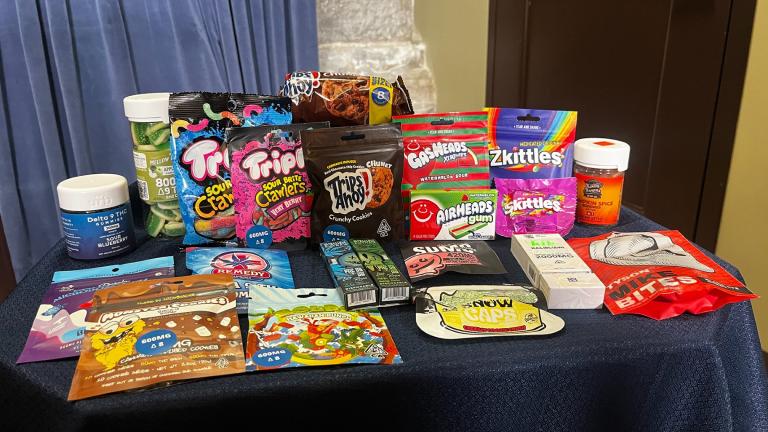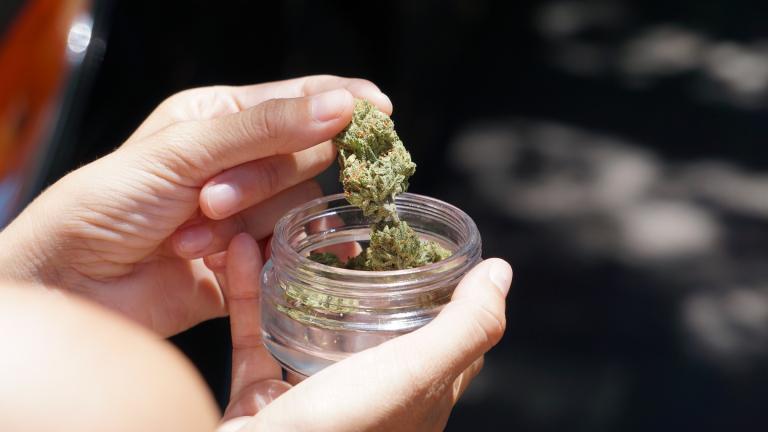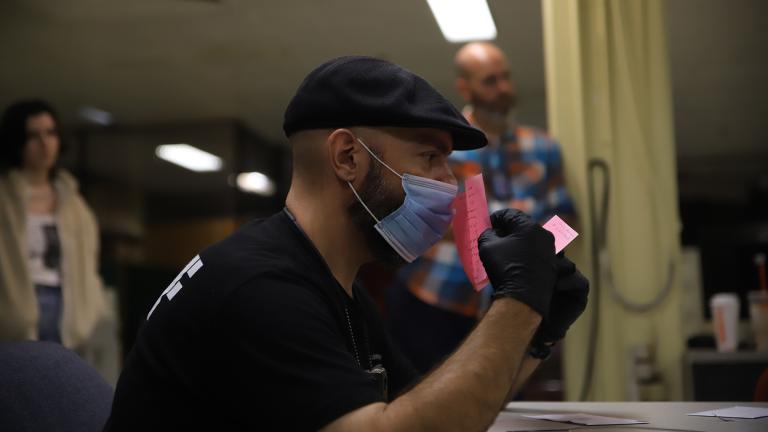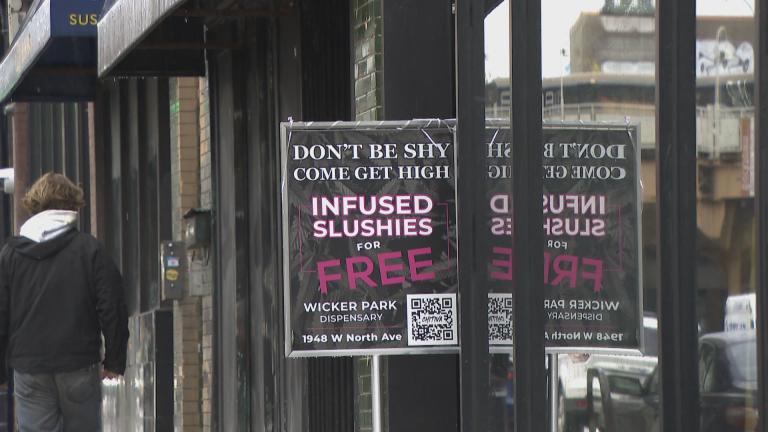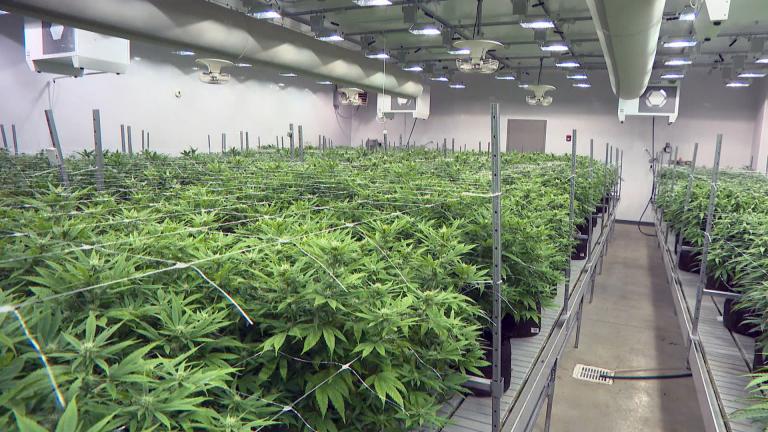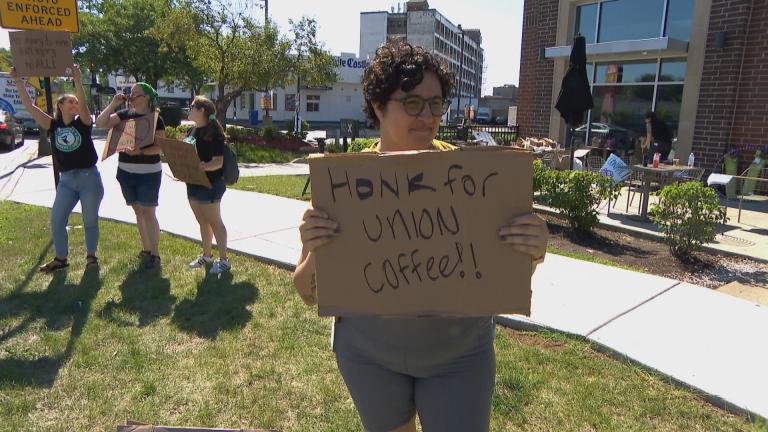As of Jan. 1, recreational marijuana will be legal in Illinois. But there is no approved roadside test to determine if someone’s driving is impaired by marijuana use.
While THC – the compound in cannabis that gets people high – is metabolized very quickly, it can remain in the body, where it’s stored in fat, for a very long time. That means that someone could test positive for marijuana long after they consumed the drug and long after the effects have worn off.
According to Dr. Hans Breiter, a professor of psychiatry and behavioral sciences at Northwestern University Feinberg School of Medicine, we’re a long way from fully understanding what marijuana does to the brain.
“Marijuana is a complex plant with at least 104 distinct compounds within it that can have variable psychoactive and neuroactive effects,” said Breiter, whose research focuses on addiction, including the impact of cannabis use. “Psychoactive effects are the main things one would be acutely concerned about for driving, operating heavy machinery or for any type of process that involves complex decision-making and risk benefit analysis of this sort.”
But neuroactive effects, meaning things that change the brain over time, may also impact behavior, said Breiter. He notes that most research has only focused on one or two of the 104 compounds within the cannabis plant.
Studies that have been done confirm that cannabis use can have not only immediate effects but also long-term impacts on the brain, which may or may not be reversible.
“Cannabis and THC in particular alters the reward-aversion system of your brain – the system that makes you who you are, the agent of your actions, that gives you motivation and determines what you like and what you want – which are two very different things,” said Breiter.
“There are multiple studies seeking to understand if such changes are long lasting but such studies take a long time. We are legalizing marijuana before we can actually finish studies that take 10 to 20 years to complete to find out that answer. To some degree we have opted to do the experiment on ourselves as a society and see what results.”
Breiter is most concerned about marijuana use among young people – up to the age of about 25 – whose brains are still developing.
“Cannabis and THC in particular effects a system called ‘working memory,’” Breiter said. “Working memory is actively developing in young people and is what gives continuity to experience. It’s what allows you to read, to drive a car, to hold a conversation. Memory is a fundamental process of our mind … Maybe I’m too much of an alarmist. As a scientist who has worked in the addiction field for a long time I am scared beyond belief about how bad cannabis is for working memory – it’s not called ‘dope’ for no reason.”
And he notes that today’s strains of cannabis are much stronger than they were in the past, as growers have worked to concentrate THC and other compounds.
“The cannabis that was smoked at the time of the hippie movement in the ‘60s and ‘70s was quite different than the cannabis that is being smoked now,” he said. “THC levels of 1% to 3% were what we expected in the ‘70s. Now you can get cannabis variants that go above 30%. And that is a different beast completely.”
And that helps to explain why police are so concerned about legalization for recreational use. Although some studies seem to suggest that drivers under the influence of marijuana may be better drivers than those under the influence of alcohol, they are still driving while impaired and have slower reaction times.
“Studies that say it’s not as bad as alcohol, it’s not as bad as being high on cocaine, it’s not as bad as some other compound kind of miss the point. You can make all types of relative comparisons – ‘my dad didn’t beat me as bad as my uncle’ – he still beat you. Let’s stop this relativism. Let’s talk about whether it has an effect or not and what we are going to do about it,” said Breiter. “It doesn’t take much for something bad to happen, and cars are extremely lethal.”
Related stories:
State Sen. Toi Hutchinson Takes on New Role as Illinois’ ‘Cannabis Czar’
Cannabis Tourism: Will Legalized Marijuana Bring Reefer Madness to Illinois?
Kim Foxx Hopes to ‘Right Wrongs of the Past’ With Pot Expungements

